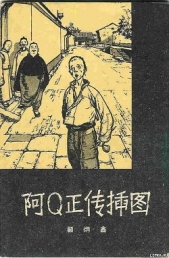La Buena Tierra

La Buena Tierra читать книгу онлайн
This is the Spanish text edition of the 1932 Pulitzer Prize winning novel that is still a standout today. Deceptive in its simplicity, it is a story built around a flawed human being and a teetering socio-economic system, as well as one that is layered with profound themes. The cadence of the author's writing is also of note, as it rhythmically lends itself to the telling of the story, giving it a very distinct voice. No doubt the author's writing style was influenced by her own immersion in Chinese culture, as she grew up and lived in China, the daughter of missionaries.
This is the story of the cyclical nature of life, of the passions and desires that motivate a human being, of good and evil, and of the desire to survive and thrive against great odds. It begins with the story of an illiterate, poor, peasant farmer, Wang Lung, who ventures from the rural countryside and goes to town to the great house of Hwang to obtain a bride from those among the rank of slave. There, he is given the slave O-lan as his bride.
Selfless, hardworking, and a bearer of sons, the plain-faced O-lan supports Wang Lung's veneration of the land and his desire to acquire more land. She stays with him through thick and thin, through famine and very lean times, working alongside him on the land, making great sacrifices, and raising his children. As a family, they weather the tumultuousness of pre-revolutionary China in the 1920s, only to find themselves the recipient of riches beyond their dreams. At the first opportunity, they buy land from the great house of Hwang, whose expenses appear to be exceeding their income.
With the passing of time, Wang Lung buys more and more land from the house of Hwang, until he owns it all, as his veneration of the land is always paramount. With O-lan at this side, his family continues to prosper. His life becomes more complicated, however, the richer he gets. Wang Lung then commits a life-changing act that pierces O-lan's heart in the most profoundly heartbreaking way.
As the years pass, his sons become educated and literate, and the family continues to prosper. With the great house of Hwang on the skids, an opportunity to buy their house, the very same house from where he had fetched O-lan many years ago, becomes available. Pressed upon to buy that house by his sons, who do not share Wang Lung's veneration for the land and rural life, he buys the house. The country mice now have become the city mice.
This is a potent story, brimming with irony, yet simply told against a framework of mounting social change. It is a story that stands as a parable in many ways and is one that certainly should be read. It illustrates the timeless dichotomy between the young and the old, the old and the new, and the rich and the poor. It is no wonder that this beautifully written book won a Pulitzer Prize and is considered a classic masterpiece. Bravo!
Внимание! Книга может содержать контент только для совершеннолетних. Для несовершеннолетних чтение данного контента СТРОГО ЗАПРЕЩЕНО! Если в книге присутствует наличие пропаганды ЛГБТ и другого, запрещенного контента - просьба написать на почту [email protected] для удаления материала
Movió la cabeza y señaló con la pipa la pared que se elevaba tras ellos, preguntando:
– ¿Has visto lo que hay al otro lado de esa pared?
Wang Lung negó con la cabeza y abrió mucho los ojos. El hombre continuó:
– Llevé ahí a una de mis esclavas para venderla y vi muchas cosas. No me creerías si te contase cómo corre el dinero en esa casa. Te diré esto: incluso los criados comen con palillos de marfil y plata y hasta las esclavas llevan pendientes de jade y perlas; también se cosen perlas en los zapatos, y cuando éstos tienen un poquitín de barro o una rotura que ni tú ni yo la llamaríamos así, los tiran, con perlas y todo.
El hombre dio una fuerte chupada a su pipa. Wang Lung, con la boca abierta, le escuchaba. ¡Al otro lado de la pared ocurrían, pues, tales cosas!
– Hay recursos cuando los ricos son demasiado ricos -dijo de nuevo el hombre, y guardó silencio durante un rato.
Luego, como si no hubiera dicho nada, añadió indiferentemente:
– Bueno, al trabajo otra vez,
Pero Wang Lung no pudo dormir aquella noche pensando en la plata, oro y perlas que se hallaban al otra lado de la pared contra la que su cuerpo descansaba vestido, con la ropa que llevaba día tras día, porque no tenía colcha con que cubrirse, y echado sobre unos ladrillos y una esterilla por todo lecho. Y de nuevo sintió la tentación de vender a la niña y se dijo:
"Quizá sería mejor venderla a una casa rica para que pudiese comer exquisiteces y llevar joyas si tiene la suerte de ser bonita y gustarle a un gran señor."
Pero, contra su voluntad, se contestó a si mismo y pensó de nuevo:
"Bueno, y aunque la vendiese, no vale lo que pesa en oro y rubíes. Si nos diesen lo necesario para regresar a la tierra, ¿de dónde saldrá lo preciso para comprar un buey y la mesa, y camas y bancos nuevamente? ¿Voy a vender una criatura para que podamos morirnos de hambre allá en lugar de aquí? No tenemos ni simiente para sembrar los campos."
Y no lograba comprender a qué podía referirse aquel hombre cuando decía: "Hay un recurso cuando los ricos son demasiado ricos."





















